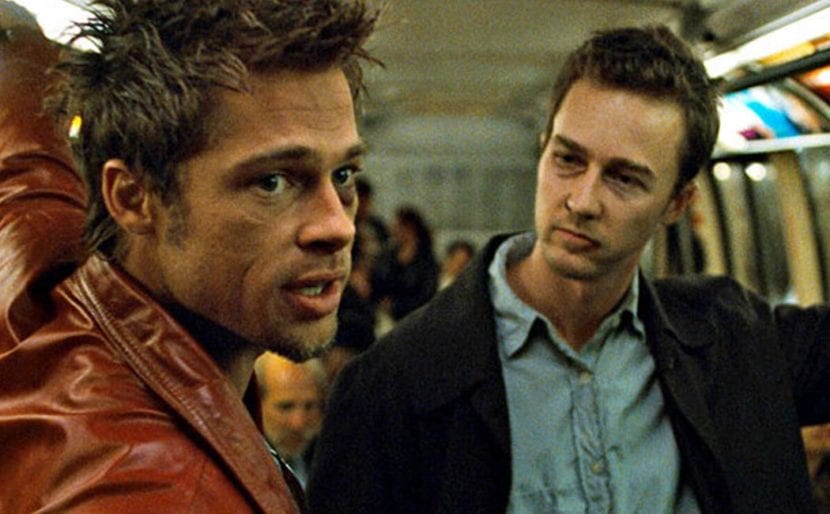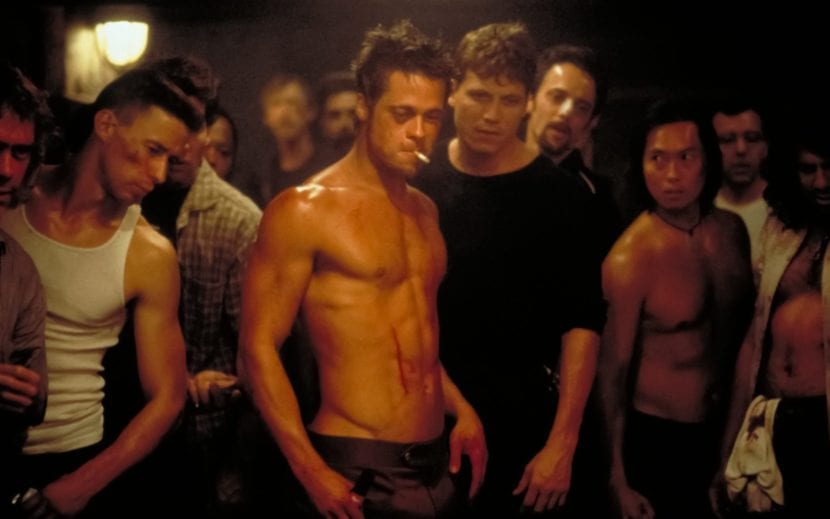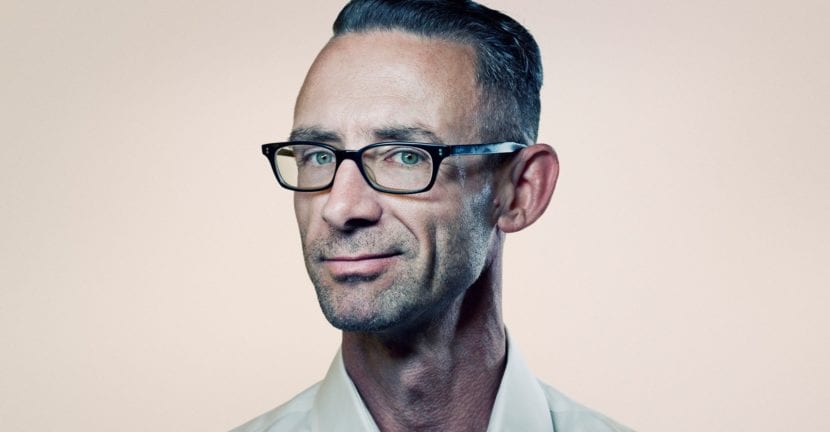
Three years before the premiere of the film starring Brad Pitt, the book that would inspire one of the most iconic films of recent years arrived in stores. Conceived as a critique of consumerism, Chuck Palahniuk's Fight Club It is an essential book to understand the world today and ourselves. Even if it is in a somewhat disturbing way.
Synopsis of Fight Club

Fight club begins with the reflection of a nameless protagonist turned into storyteller. A character who works for a car company and whose life is based entirely on consumerism. In fact, the narrator lives obsessed with the furniture, clothing and other material objects of his life, which, added to his constant trips for work, end up plunging him into a chronic insomnia.
After attending different group therapies among men with testicular cancer - hearing the testimony of people who are in a much worse situation than yours allows you to sleep better - he meets Marla, an enigmatic woman who connects him with Tyler Durden, a multi-employed artist totally opposite to the protagonist. After meeting, Tyler invites you to participate in Fight club, a "therapy" center defined by 8 rules:
- Not to mention the fight club.
- Let no member talk about the fight club.
- If someone says enough, falters or faints, the fight is over.
- Only two men fight.
- There will only be one fight at a time.
- No shirts, no shoes.
- The fights will last as long as it takes.
- If this is his first night at the fight club, you have to fight.
However, the "fight club" will end up becoming a preamble to an initiative founded by Tyler and the Storyteller: a sect made up of an army that overthrows western civilization as we know it. Called Mayhem Project, this is made up of the following laws:
- No questions asked.
- No questions asked.
- There are no excuses.
- You don't lie.
- You have to trust Tyler.
Fully integrated, the protagonist narrator becomes a staunch supporter of Tyler without knowing that, as he has been immersed in these new changes, his personality has completely changed.
Fight Club Characters

- The narrator: The simple fact that the protagonist is presented as a nameless guy allows the reader to identify with an everyday character, so close to ourselves. Affected by chronic insomnia, the protagonist begins to attend therapies for sick men, since listening to their testimonies allows him to cry and feel more liberated. After meeting Marla, and especially Tyler, her life will be completely changed by putting aside her obsession with consumerism and, ultimately, modern Western society to turn against her.
- Tyler Durden: Nihilistic and primitive, Tyler is a character who has a great hatred for modern civilization. Multi-employee, he works in different occupations that allow him to be the co-founder of Fight Club, a prelude to Project Mayhem, an organization that completely unleashes Tyler's hatred towards society, turning him into an antihero, especially towards the end of the novel.
- Marla Singer: The female protagonist of the novel is in charge of introducing the Narrator to Tyler, with whom she maintains a Affair. Although she does not enjoy the importance of the two protagonists, Marla is an essential character, since her relationship with both defines a large part of her decisions and the development of the work.
- Robert "Bob" Paulson: This character is a man, a former bodybuilder, whom the Narrator meets in the first group therapies for testicular cancer. The use of steroids ended up giving him cancer, at the same time that it led him to take injections of testosterone, which caused a hormonal imbalance. Despite his timid introduction, the character becomes of great importance after dying on a mission for Project Mayhem that causes a confrontation between the Narrator and Tyler.
Fight Club: Good Movie, Best Book

Like the Storyteller, Chuck Palahniuk was working for a car company when he wrote the novel, more specifically for a trucking company. Behind the rejection of a first novel, Invisible MonstersBy editors who found it too disturbing, Palahniuk expanded on a chapter in a short story anthology called Pursuit of Happiness that would result in Fight Club.
After being sent to publishers who found it disturbing even to themselves (Palahaniuk's target), the novel was finally published in 1996.
Although many fans still ask Palahaniuk for the origin of this "fight club" and its location, the author has stated on numerous occasions that this invention comes from the fights between boys during the summer camps of his childhood. This fact, added to a volunteer work in which he was dedicated to transferring terminally ill patients to the hospital, would result in a compendium of stories that supposed a reflection on the current world and the change of pattern in modern masculinity.
Upon its publication, the novel became a critical and sales success, attracting the attention of various Hollywood producers interested in adapt the book to the big screen. After several negotiations, finally David Fincher would lead the adaptation with Brad Pitt, Edward Norton and Helena Bonham Carter in the roles of Tyler, Narrator and Marla respectively.
Despite reaching No. 1 at the United States box office during its opening weekend in June 1999, the film did not achieve immediate success. The blame was on an erroneous promotional campaign that focused on a bare-chested Brad Pitt and the importance of fights between men in a club overshadowed the more philosophical sense of the story itself.
However, and despite the lukewarm initial figures, time ended up recognizing El club de la lucha as a cult film, being considered by critics and the public as one of the most influential films of the last 20 years not only for its cinematographic quality, but also for its powerful message.
Movie that led more than one viewer to rescue a book equal to, or even better, than the movie that turned it into a mass phenomenon.
Did you read Chuck Palahniuk's Fight Club?